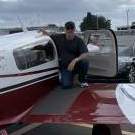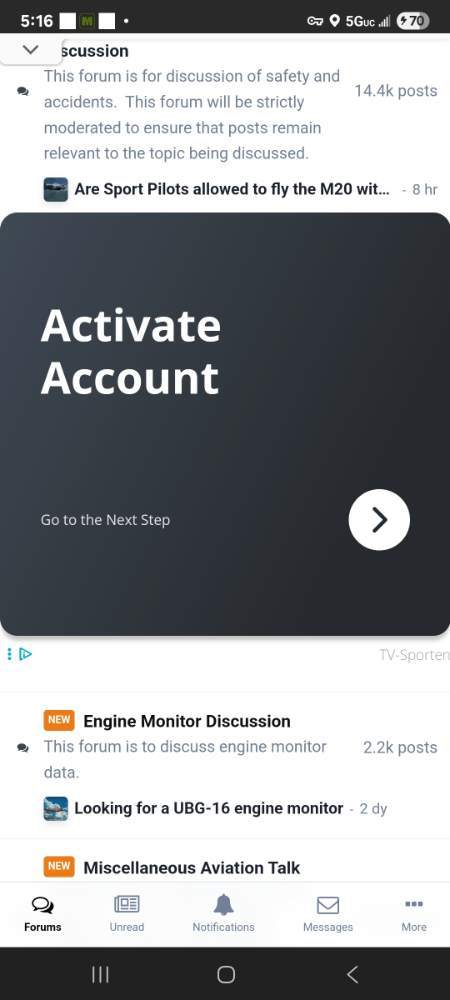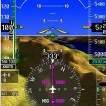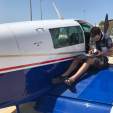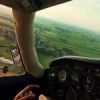All Activity
- Past hour
-
This is one of the “best” thread hijacks I’ve ever seen.
-
Summary: 65 M20E, johnson bar fatigue cracked to failure at base of bar to trunnion. Inspect the weld toe. Storyline: my polished M20E is a high time airframe 10,000+ hrs. I've flown it for the last decade from 2FD6 in Florida all across the country (just really having a Hoot) St. Thomas, Anchorage, Massachusetts, started in California. Not a hangar queen. So started an assisted annual and found burnt valve in #4. Had time to do some more extensive maintenance then and chose to remove the main gear for paint. Used the stuff the main assistant spring with washers method of unloading the mains and removed them. As I got out of the jacked up airplane I noticed the nose gear slowly retracting back up. Hmm... thought I had the J-bar locked up. Yep, locked up. While I was thinking why would the nose gear be divorced from the gear handle with the mains removed, I unlocked and the handle came out in my hand. My buddy said it's not supposed to do that, need to put that back. Then we decided this is the best time for this to happen, no belly landing involved. Examination revealed it was a multiple step fatigue Crack failure in the aft weld toe, bar to T. I have a practice of WD40 everywhere on annual and it was evident in the extending crack. Therefore we missed it growing! Defense posture; It is down in there with boots, dark, lots of things going on and these never fail attitude. Well, change that. I do believe a contributing factor was the gear over-center link preload. I had always thought that, yep the J-bar was difficult but doable and I'm on a grass field where positive lock is important. Besides, it's working. A Mooney specialist had said you might need this someday, and I made a template of his 8444/8442 tool. But that was a decade ago and never got there. Couldn't find the 8444, 8442 tools so finally made them. Nose gear was over 3x the original manual 100-130 inlbs spec and with the mains also a little tight made for a difficult uplock on the J-bar possibly over stressing over time (cycles). "Learn from the mistakes of others, you just don't have time to make them all yourself ". If there's interest, I can make the tools available to others, thinking it's important.
- Today
-

65 M20C AOG Carb Heat cable broken at the level arm
Hank replied to NicholasM20's topic in Vintage Mooneys (pre-J models)
When it broke on my C, it defaulted to Fully On. In flight. It was a very s-l-o-w flight home to figure out what was wrong . . . Even Atlanta Approach asked if I.was really Mooney. -

how to start without an electric fuel pump
Jim Peace replied to bdavis3223's topic in Vintage Mooneys (pre-J models)
WTF..... -
Bert Paine joined the community
-

Retract Gear or Flaps First in a Go Around ?
Hank replied to donkaye, MCFI's topic in Modern Mooney Discussion
Be glad, the Owners Manual for my 70C doesn't mention balked landings, go-arounds, etc., in any section. -
New Changes To Memberships & New User Validation
KeithN92KD replied to mooniac58's topic in General Mooney Talk
This is the pop-up add that Was confusing as you first navigate this site. With the request for photo, profile questions, sustaining membership possibly and this pops in. They got me to click. Almost as if they knew I was Newbie but didn't know it yet. -

Where is the “Ice Hole” on the Ovation breather tube??
Scott Ashton replied to William Munney's topic in Ovation Owners
I have the same one - on the IO360 it’s quite a ways up the tube and you have to give the supply tube a good shove to get up past the ice hole. I have the tube marked so I know how far to put it - I did that when I changed the oil. Buy a few jugs of dessicant in order to swap it out when it’s turns pink, so you can bake the used stuff at your leisure. baking the dessicant is a pain. I probably should have gone for the Drybot instead. Those guys were in the booth next to me at Oshkosh for the last two or three years and it’s a nice product. -
Yet another case with plenty of options. Thankfully they survived.
-
Mhsha01 joined the community
-
Hello, Looking for used: - GNS non-WAAS NavData Card (green label), 8Mb Regards, AVDB
-
Holy Micro! LLC has added more reminders and enhanced smartphone like Bluetooth connectivity for the SkyVoice Alert 500 and SkyVoice Glassy Guide 400, helping pilots fly safer and easier by reducing cockpit workload and preventing gear-up landings. SkyVoice Alert 500 – Smarter Altimeter with Intelligent Algorithms The SkyVoice Alert LHA 500 combines LiDAR technology with next-generation algorithms and includes customizable reminders, Bluetooth connectivity, and a proximity-based gear warning system for improved safety during takeoff and landing. In its Advanced Mode, the system added more reminders, pilots can set additional reminders in AGL, MSL, and Run-Time categories; enhanced Bluetooth connectivity for seamless smartphone-like wireless pairing; and direct headset integration. Combined with an improved software algorithm featuring signal noise suppression and smoothing, these upgrades ensure more accurate altitude readings and timely alerts. This integrated setup allows pilots to receive real-time altitude announcements and safety reminders directly in their headsets, minimizing distractions and enhancing situational awareness throughout every phase of flight. Key Features of SkyVoice Alert 500: · LiDAR range of 590ft. · Continuous Gear warnings from 560ft until the Gear is down & locked. · Takeoff announcements from 10ft to 500 ft. · Landing announcements: 500ft to 1 ft. Expanded user selectable reminders: Check Gear, Checklist, LC GUMPS, Flaps, Speed, Clearance, Prop, Pump, Check Cabin Pressure, Check FF RPM OP MP, Check Fuel Flow, Check Power etc... · Run-time reminders: Check Tank, Check Carb Heat, Check FF RPM OP MP, Check Fuel etc… · GPS/MSL announcements with reminders from 18,000 ft to 500 ft, Reminders like Check Oxygen, IFR Altimeter, Clearance, Prop, Top of descent, Check Cabin Pressure, Check FF RPM OP MP, Check Fuel Flow, Check Power etc… · Bluetooth or wired connectivity SkyVoice Glassy Guide 400 RADAR Altimeter for Amphibians The SkyVoice Glassy Guide 400 is a RADAR-based Takeoff and Landing Height Announcer built specifically for seaplanes and amphibious aircraft. It provides accurate AGL readings up to 400 ft, even over glassy water, where depth perception is most difficult. In its Advanced Mode, the Glassy Guide 400 adds more reminders in AGL, MSL, and Run-Time, along with enhanced smartphone like Bluetooth pairing, giving pilots additional options for receiving altitude callouts and reminders. Key Features of the SkyVoice Glassy Guide 400: · Radar range of 400 ft. · Takeoff announcements from 50ft to 400 ft. · Landing announcements from 400 ft to 1 ft. · User selectable reminders, including Clearance, Check Gear, Checklist, Check Cabin Pressure, Check FF RPM OP MP, Check Fuel Flow, Check Power, Speed, Flaps, Pump, LC GUMPS, Gear Up for Water Landing, Prop etc… · Four customizable gear reminders · GPS/MSL announcements from 18,000 ft to 500 ft with user selectable reminders like IFR Altimeter, Check Oxygen, Clearance, Prop, Check Cabin Pressure, Check FF RPM OP MP, Check Fuel Flow, Check Power etc… · Run-time reminders: Check Tank, Check Carb Heat, Check FF RPM OP MP, Check Fuel etc… · Portable version available with rechargeable battery, Bluetooth connectivity, and the same internal hardware as the certified unit—ideal for testing before permanent installation. Holy Micro! LLC is redefining aviation safety with LiDAR and RADAR altimeters, Absolute AoA technology, and pilot-focused innovations.
-
I have done some of these, it's not practical (many places have tons of rules on noise). Sometimes it's what one needs to do in places where options ahead are limited with built up areas ahead, the majority of these places down here already require 45deg turn right after departure from runway axis as "normal noise departure"... Flying tight pattern with steep angle (less power) is also helpful, although, this skill is not longer in fashion as pilots are taught from day 1 to fly "wide B52 bomber patterns" on "PAPI/VASI using 3deg glide" with "stable approach". Anyway, tight departure and tight pattern helps when flying VFR: one day as one will need it, as we say, it's good to invest in own luck rather than waiting for surprise ! Then there is IFR flying: prescribed SID or ILS paths or low vectoring, especially IMC, not much choices than keeping straight wing level, on sensible speed, and hope for the best...
-

how to start without an electric fuel pump
Joshua Blackh4t replied to bdavis3223's topic in Vintage Mooneys (pre-J models)
Someone I know was in this exact state a while ago in an M20E. It took a few months to get a new pump so he was flying it around without an issue. To start cold it, it takes a bit more battery. Full rich, cracked throttle and then crank. It takes a few turns to build fuel pressure, then 5 seconds later it should start. You might have to crank to pressure, rest the starter, then start it. While you are at it, make sure you change your post to have it on record that the pump is still working and you are only asking for information. Mechanical pumps rarely fail, and many people have electric backup pumps that are not rated for continuous duty and probably won't get them very far, so I don't see much increased risk. Information for ground starting purposes only :p -
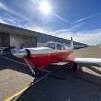
Retract Gear or Flaps First in a Go Around ?
varlajo replied to donkaye, MCFI's topic in Modern Mooney Discussion
My 71E came with an Owner's Manual rather than POH, and the only chapters that are FAA-approved and regulatory in nature are Limitations and Emergency Procedures. Balked landing procedure is under Normal and therefore merely advisory. I guess I'm lucky. -
Sounds more like Laceration 101 . . . lol.
-
easy to answer that. Ask for the exact part number of the KX-165 and check what indicator you have. The install manual of the KX-155/165 is easy to find online
-
Um...that's awesome!! I would love one! I think it was called the Mark 21 through 1967, and the Ranger name appeared for 1968 model year. Based onmy serial number 680002, I have the 2nd "Ranger". And who are you calling ugly?! Let me know what I can do to make it worth your while to send one my way.
-
Where did she find them? At a yard sale there in Kerrville?
-
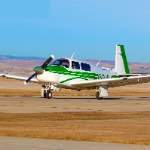
Retract Gear or Flaps First in a Go Around ?
Slick Nick replied to donkaye, MCFI's topic in Modern Mooney Discussion
The “legal” answer, is do what it says in the POH for your model and year. It’s worth noting that in both cases, flaps are retracted before gear. -
I would. I'll PM address.
-
She also found two of these ashtrays. They do not say a model, or any other identification for that matter, but they are definitely '60's. I will keep one. Would anyone like the other?
-
Those are cool, @Mcstealth! By sheer coincidence, I've owned my Mooney Ranger for 18 years now . . . But I've never seen one of these.
-

how to start without an electric fuel pump
varlajo replied to bdavis3223's topic in Vintage Mooneys (pre-J models)
If the idea is to run the engine on the ground, start cranking with mixture at idle cut off and slowly advance mixture while continuing to crank. Be patient. I wouldn't fly with an INOP boost pump. -

EDM-900 For Sale - Never Installed for J
LANCECASPER replied to Oldguy's topic in Avionics / Parts Classifieds
I have heard that in recent times JPI will do the re-program and e-mail it to you rather than having to send it back. Then you just plug into the usb port. Not sure of the cost though. -
I would love one!!

